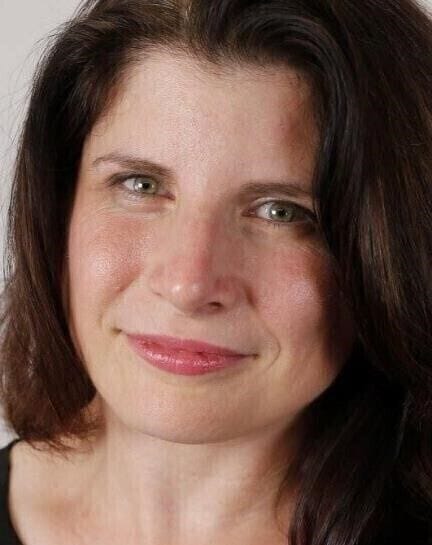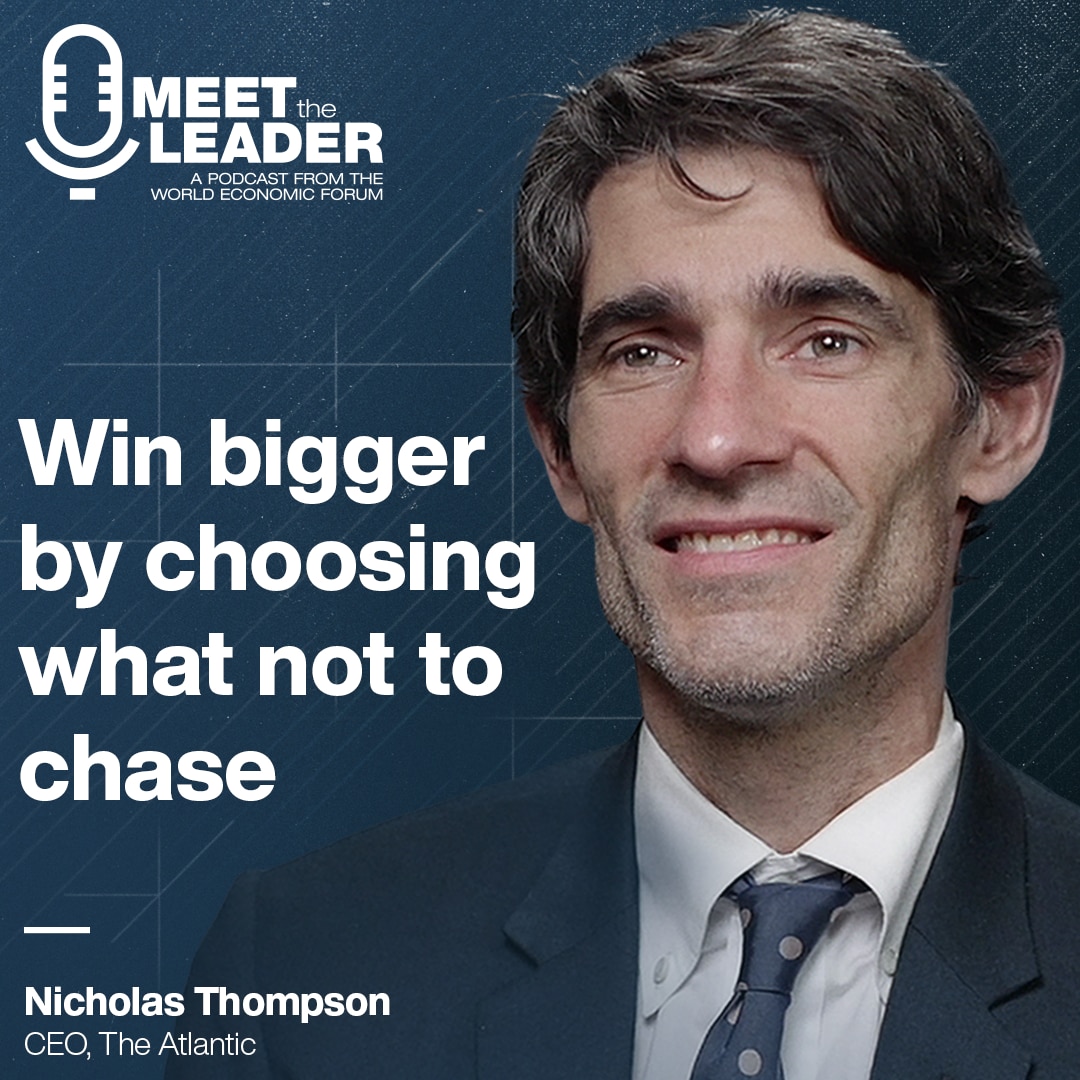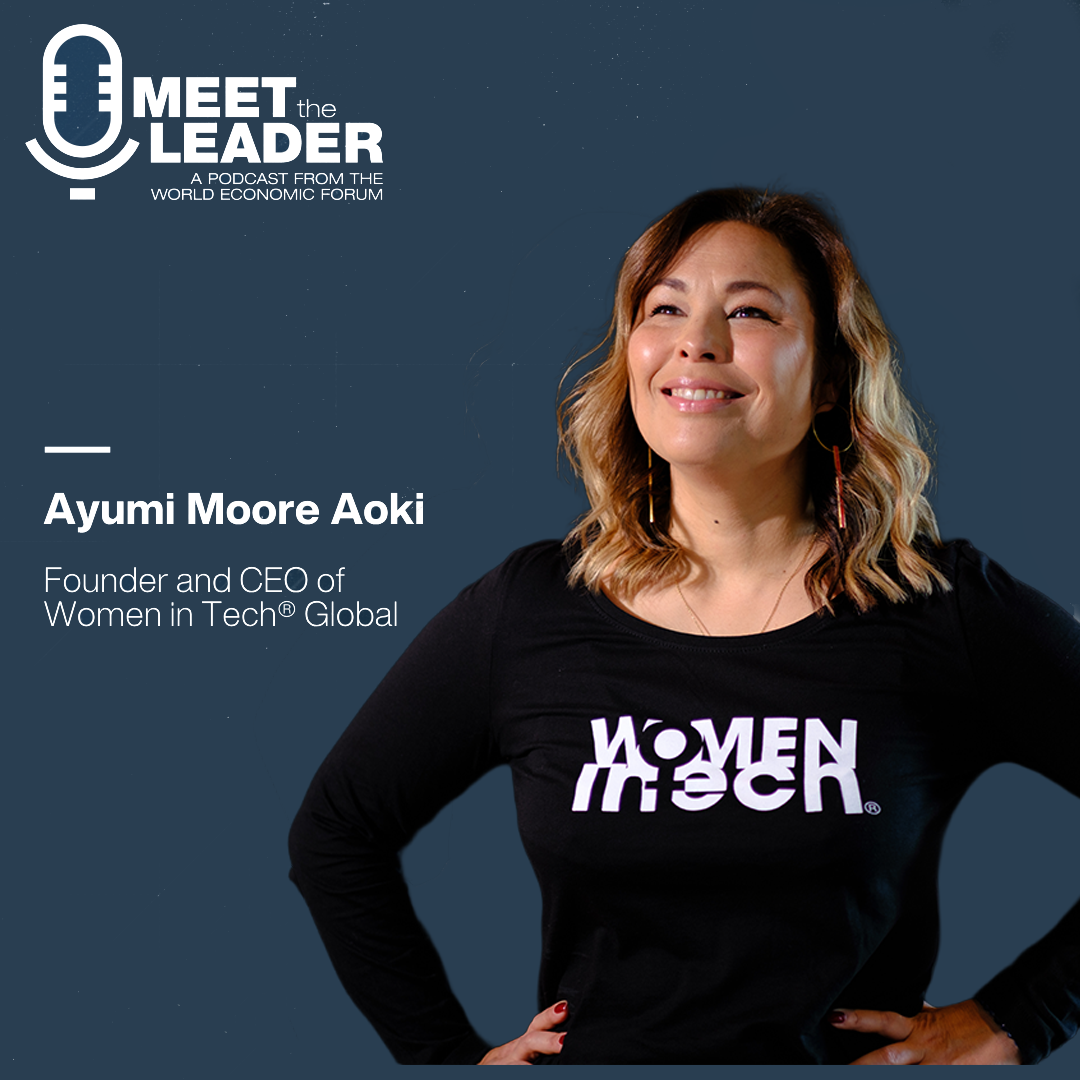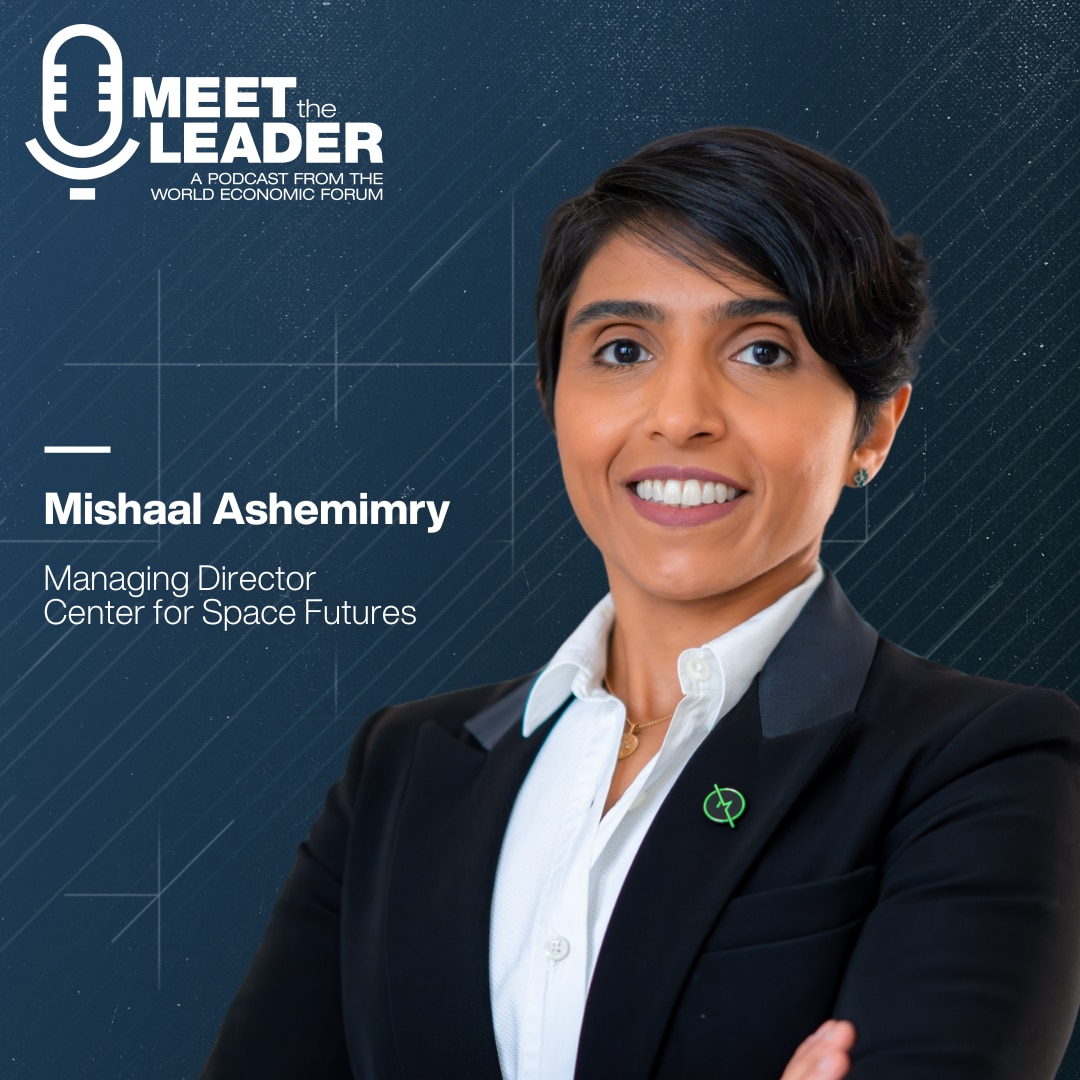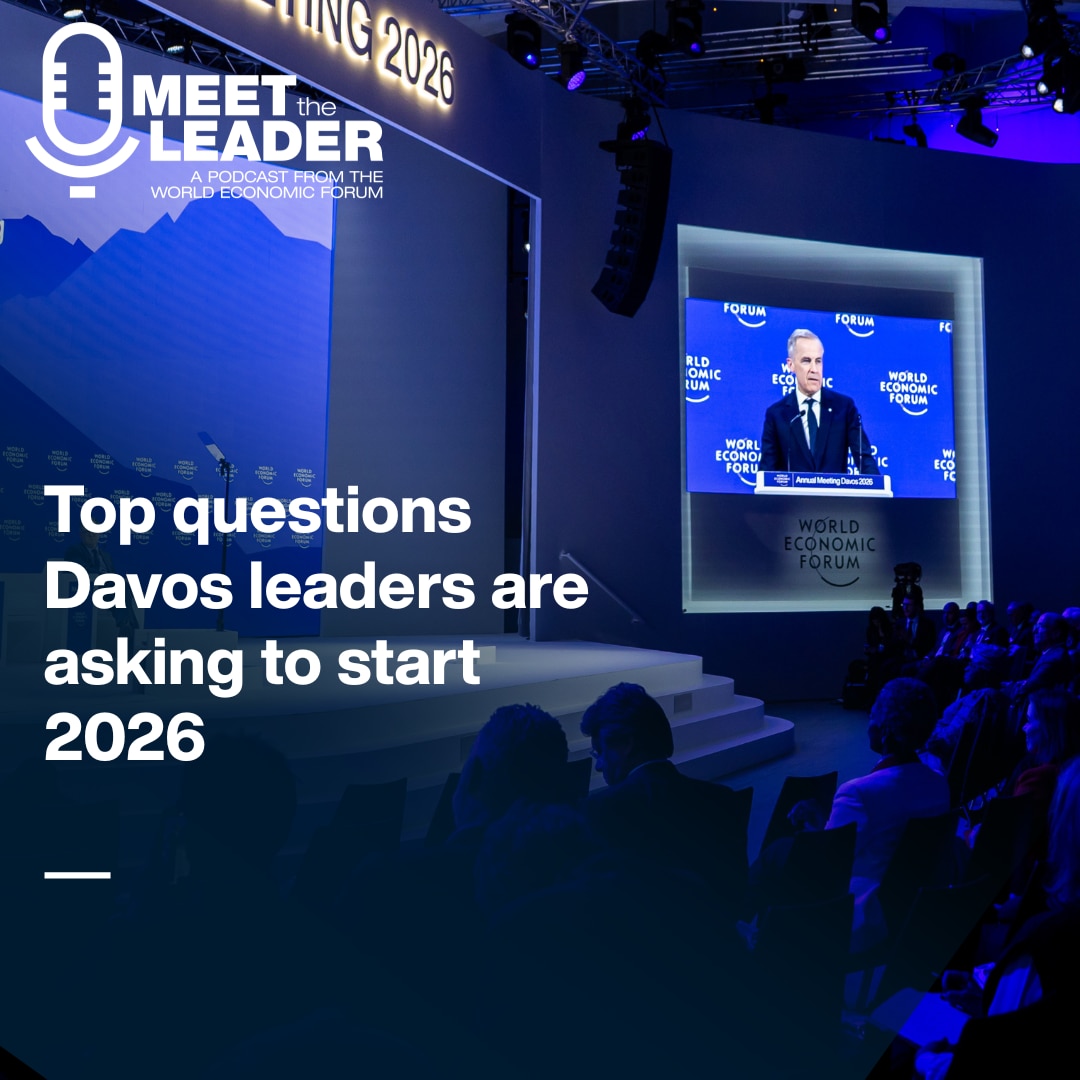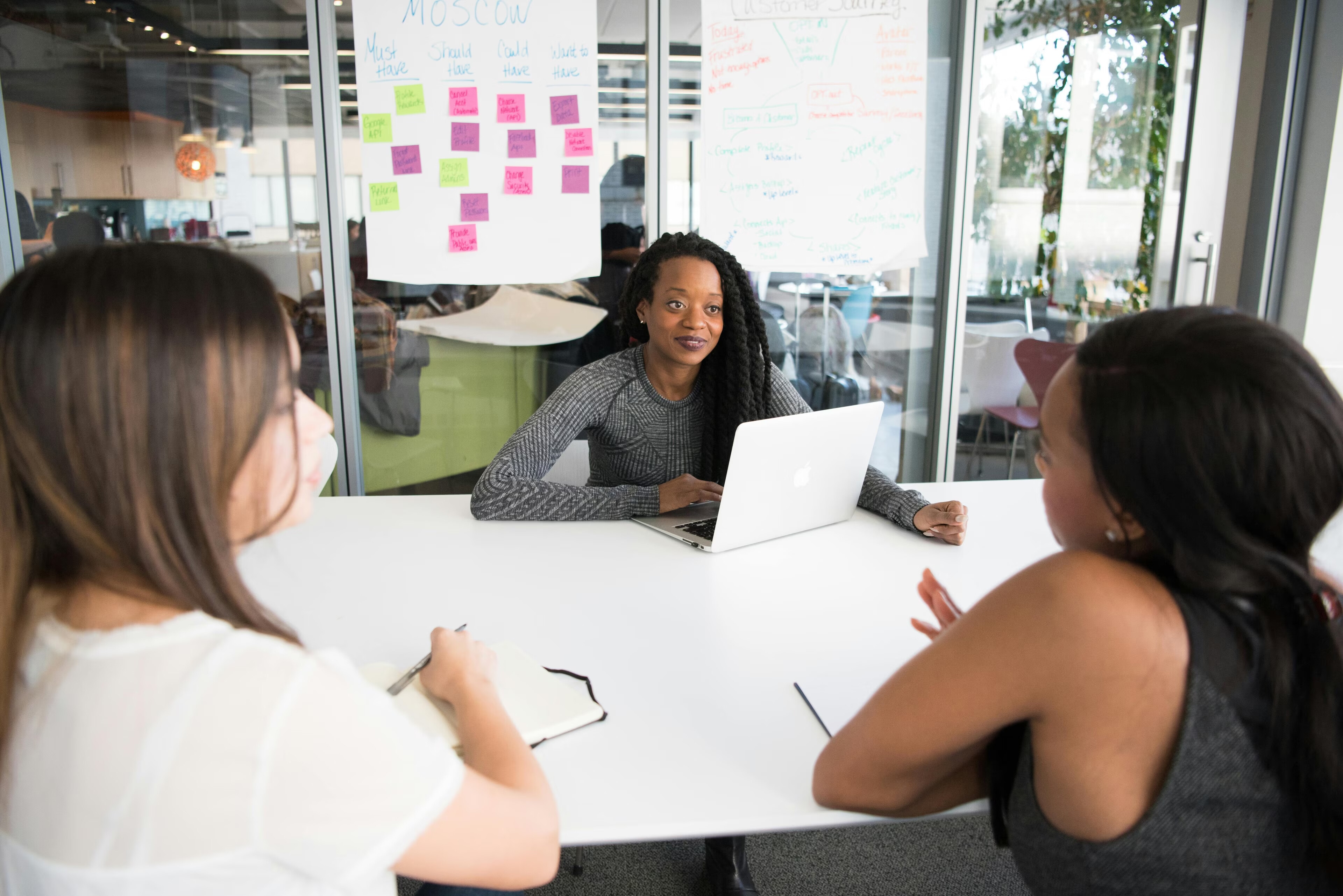We're living longer - how approaches to work, careers and finances will change: APG's Annette Mosman
ポッドキャスト・トランスクリプト
This transcript has been generated using speech recognition software and may contain errors. Please check its accuracy against the audio.
Linda Lacina, Meet The Leader Welcome to Meet the Leader. The podcast, where top leaders share how they're tackling the world's toughest challenges.
In today's episode, we talked to Annette Mosman all about living longer and how we can prepare for that both financially and mentally.
Subscribe to Meet the Leader on Apple, Spotify, and wherever you get your favorite podcasts. And don't forget to rate and review us. I'm Linda Lacina from the World Economic Forum and this is Meet the Leader.
Annette Mosman, APG If you want to create a life for yourself or for the world, you need to think long term.
Linda Lacina, Meet The Leader Annette Mosman is the CEO of APG. It's one of the world's largest pension investors, and one that executes the pensions of 4.5 million people, all with 550 billion under management.
In her world, she is very comfortable thinking about the long term and APG was a key driver in our recent Longevity Economy Principles report. That's a report that looks at how longer lives are going to reshape how we approach the decades ahead. There's a number of eye-popping statistics in it, including the fact that by 2050, the global population over 60 years old is going to double to 2.1 billion people.
That brings with it the need to change how we approach getting older. Many more people will outlive their retirement savings. We're going to need to expand how we educate people on their finances.
And longer lives are not anything unless we are healthy and well. And so we will need to prioritize things like social connection, healthy aging, and design jobs that can evolve with a multi-generational workforce.
She talked to me about the sorts of changes we can expect and plan for in the years ahead. But she also shared her own career journey and a special career turning point that drove home for her the need to be independent to weather different life stages. She'll share all of this and her advice for new grads.
But first, she'll talk more about the longevity report and what surprised her most.
Annette Mosman, APG Well, I'm very excited that this report is there, and I think the longevity which is hitting all over the world, if you look globally by now, there are about 1 billion 60-plus people in the world. In 2050, that will be 2.1 billion. So we have this longevity economy coming forward. So I think it's very good. That was a World Economic Forum working group thinking about that. And the good thing here is that they got on a more strategic and holistic approach.
And it came off with, quite nice six principles, which we can work on further. It is about health, how to be healthy. And it is about how do we organize health systems, Well, with the growing number of people. And it is about workforce. How do we organize, how do we use the new technology to be able to cope with all those people who are getting older and working less? It is about how do we finance?

And I think what didn't surprise me, but I think it's very important, it is also about the gender gap and knowing that if you look at how do we finance growing older and how do we prevent poverty, especially for women, that's a big issue. So that's not a surprise, but it is very important.
Linda Lacina, Meet The Leader None of this is a headline, you know, but it's still something where there's a huge gap. Why do you think that more hasn't progressed on these topics? You know, why is there still this gap that needs to be bridged?
Annette Mosman, APG It's getting in the headlines more and more, there is a lot of attention about women in leadership and the value of having that. But there's not so much information about female empowerment and being financially independent.
To be honest, one year ago, I became, top woman of the year in the Netherlands, and I had to choose a subject and I thought, okay, I'm not choosing the female leadership thing, but I'm looking at financial independence. And I was really shocked, especially -- well, we're just talking about longevity, we're getting older. If you look at women, they have 40% less income when they grow older, and that's maybe not an issue if you stay married. This situation that you're alone. There was a lot of poverty getting ahead of us.
I think also me working in the pension industry, being a woman, being aware of difficulties, of the fact that women are taking more and more caretaking activities. Even then, I was surprised by the numbers.
Linda Lacina, Meet The Leader Among the solutions that are put forth in the Longevity Principles report for financing people's expanding lives, what are some that kind of stick out to you that you think are particularly important for people to be focusing on?
Annette Mosman, APG I think the most important is to be in time aware of this, because when you create awareness, when you're 55 or 60 years old, it's often too late to deal with. So I think awareness as an early stage of your career. What does it mean when you go working only part time? It's very important. The other thing is also be aware for which employer you are going to work. In the Netherlands there is a shift towards a lot of self-employment people. Well, one of the things which is not regulated at that point is your pension. So, one is awareness and two is education. 33% of the world population is financially literate. So education is very important, especially when you realize we're getting older and we need to think about how to finance it.
Linda Lacina, Meet The Leader So many people don't think about that. They're not thinking about what happens 30, 40, 50 years down the line. How can we make people at maybe any generation think about what that might look like for them? How do we make them more financially literate?
Annette Mosman, APG The first thing is awareness. What we're doing at this moment is doing some campaigns, and we can't do it only from the pension industry or from private companies. So we need government. We need a public place to bring it in into the intention.
The second one is that pension is maybe a subject you look at once in ten years if you do it. So we have to make it a bit more sexy, a bit more digital. So approachable information and a real story so people can see it. So we're investing a lot in the pension industry also on digitalization, platform services. But having the good experience alone is not enough. So the combination should do it a bit.
Linda Lacina, Meet The Leader How else do you think that pension plans are going to evolve, maybe with these shifts in longevity?
Annette Mosman, APG Yeah. What we're doing in the Netherlands is it's evolving from a guaranteed system, defined benefit towards a more open system. So that means also on a monthly basis, we will be able to report on how big your pension pot at that moment is. It will be more risky for everybody. And to be able, for us as a pension industry, to have less buffers and to invest more in categories with higher risk profiles. That's one thing, less guarantees.
But the other thing is also answers if you get older. We used to have the pension for the last 4 or 5 years that you live. You lived your life, you worked hard and for five, 4 or 5 years you had a pension. So I think also here we should think of continuing development of yourself and invest in yourself and and working -- maybe not full time, but also working a longer time. And from my perspective, I really do believe that, keeps you also energetic. So that's also it gives you a purpose. You meet people, you learn different social circumstances. So I think it's very positive to do so.
So also here one is the pension and the financing. But the other thing is we need to think how to live our lives and what is possible in terms of the working area.
Linda Lacina, Meet The Leader With pension participants, you know, what do you think they're worried about now then maybe they might have been worried about 20, 30 years ago.
Annette Mosman, APG Oh, I think now they're worried more about their health depending on what kind of pensioner, but also about the risks involving is there still money when I'm getting old? Everybody knows -- there are a lot of people growing older -- so I think they're worried about a lot of things, but most of them are not really relevant.
So also there, communication and information is important. We have a call center and people say after they receive their first pension income, "Oh, I'm so glad something is left. So they've been worried for a long time." So I think first is the the financial part, but also how do I give purpose? Because it's not anymore for you guys. It's it's, when you look at women who grow older, it's about 20, 25 years after you retired. And so purpose giving is also something which people are thinking more about compared to 20 years ago.
Linda Lacina, Meet The Leader So knowing where you stand financially just to get a snapshot of where that is, but also knowing what you stand for, what you want, you know. There is a sort of a still a gap between how retirement is changing, how longevity is changing, and also sort of what workers are prepared for. What is your advice maybe for leaders as they are helping to either seek out benefits or design programs in their workplace that could be a help to their workforce? What would be your advice for them?
Annette Mosman, APG For me, it's very important as an employer to have a fit workforce and knowing that people are getting older, we have a lot of arrangements how the last years people can grow towards their retirement age. I think that should change, focus on and keep people mentally and physically fit and and put arrangements in place around that.
And focus on development. How can people develop, how can they learn? So learning opportunities but also focus on a more open culture. It's not the when you start your career, you go up, up, up. It might be a new normal. You say, okay, I've done my career, I'm very proud and I'm looking that I now for other activities I can do and where I can add value within my company without having this notion, oh I'm going, there's a demotion. So think of jobs, which people always who are very experienced can add value and value these jobs.
I think this is a real challenge for leadership. It's different, but I think we should do it because the longevity and the combination, as I said 2 billion over 60, plus younger generations, I think that's all over the world.
Technology is one. Migration might be a solution, but also keeping older people into your company and creating jobs which are different from now in a normal career path.

Linda Lacina, Meet The Leader Working in pensions, working in retirement planning, is there a way that folks in your industry approach planning for the future that maybe regular people don't?
Annette Mosman, APG We are learning and developing. Always look at the long run. We are investing on the long term. So having this long term perspective in mind, I think that's that's really the pension people. And that means also knowing that you have to make plans for the long term if you want to create a life for yourself or for the world, you need to think long term. So I think that's, that's, particular about pension people.
Linda Lacina, Meet The Leader What would be your advice for, say, those graduating this year, right, at college or high school even? They are in a perfect situation to set themselves up, but it still might be the most challenging for them to imagine what their life might be 80, 90, 100 potentially. Right. We're we're kind of seeing the, life expectancies going up and up and up. What would be your advice? Is there a question that they should ask themselves as they get started in their jobs or choosing, initial paths or companies or question they should ask or, or even a habit of practice that they should perform so that they're always sort of keeping that future in mind. What would you suggest to them?
Annette Mosman, APG Yeah, first of all, I would suggest look at the pension sector. With the longevity point, which I addressed. We need a lot of people. And it is about data, new technology, I and this about impact. So it's a very good environment to work.
I think always try to envision how you like to live your life. And that's in nice discussion. Are you thinking about kids and what does that mean? And also about what is your dream? And then the last question is what do I need?
So it doesn't mean we have to both work or do we choose other combination? This for me is very important to have the dialogs. So don't do very excel sheets, but have the dialog with yourself, with your friends and think about it. I think that's the most important thing. And value -- self-employed is sometimes better paid, which is okay for the now -- but value also that working for an employer who's also taking care of the pensions.
Linda Lacina, Meet The Leader And I want to talk a little bit about your leadership journey as well. When you look back at your career and what you've done, has there been a turning point where you made a change and maybe it was just in your mindset, your outlook, maybe it was even in sort of the way you worked, but something that was really impactful and taught you some important lessons?
Annette Mosman, APG The first moment is how I grew up, and that was the moment that I realized that my mother had to stop working as soon as she got pregnant, and that she was very happy in our life. But I always felt when she said to me, you have to take care of yourself. You have to be independent. Go for your own chances. I think this is a very important one. So I started off working okay, I go for it and I like working and it's an opportunity to learn.
And the second one is, I think only 25 years later that I realized that being authentic and being myself, I have much more impact than looking up and thinking of how is he or she doing it? And, can I do it? So I realized, stay very close to yourself.
And I also realized that all my bosses I used to work for, I thought I knew how the world works, and I thought I knew what the solutions were. But that's not true. They have a vision. They have a vision. But how it exactly works. And I had a vision. So everything changed by the moment I agreed for myself, okay, I have a vision and I speak up. And from the moment you realize you get a good discussions, you get more impact and have the guts to do it. That was for me personally the best moment.
Linda Lacina, Meet The Leader Use of that authenticity is really important. You should just embrace the way that you work. Is there a particular habit or a trait, maybe the way that you talk to people or the way you approach problem solving that you're like, you know what this is, this is my way, and nobody does it in this particular way. And I'm going to lean into that. What would that be for you?
Annette Mosman, APG I used to see stakeholder management as much more politics whereas stakeholder management is really listening to the stakeholders close to you, but also listening to society. And also the main reason I'm here at the World Economic Forum is listening to other people and then realizing that maybe your opinion or vision wasn't well-sharpened.
So also be able and open to sharpen your vision based on what you hear. And I think that's especially important in leadership skills right now because the world is so complex. We have so many wars going on, the climate problem, polarization, there is not one solution. So you are listening and then make up your mind, think of a strategy, gather good people around you. And for me, good people are not only the experts, but are people who always say the truth to you as a leader so you know when you're wrong or on the wrong path. I think that's the most important thing in a complex environment we're living in this in this phase.
Linda Lacina, Meet The Leader Is there a piece of advice that you've always been grateful for?
Annette Mosman, APG One of my shareholders said -- I used to be CFO, so I was explaining why the results were this and not that, and I had all my data in my head -- I did it in my Dutch way, so relatively direct. And, he said to me, he was an Italian. Are you really sure you and the Dutch are always right? And I was, there was such an eye opener. Okay. You have to -- take the field and be decisive. But also hear, and learn to be also modest and moderate and to look into the eyes, to the people who you speak. And know what they are thinking, too.
Take the field and be decisive. But also hear, learn to be modest and moderate.
”Linda Lacina, Meet The Leader You're the CEO of APG. I'm sure you didn't envision that when you were a young girl that you would be. What what would you say to yourself if you could talk to yourself at 18, 19, 20 when you're sort of just getting started in the world? What would you say to her?
Annette Mosman, APG Oh, maybe browse a little bit, browse. And I think I would say to the, the little me, don't hesitate. I know when you fall, you always will get up. And, I think that feeling you give to your the little me and maybe youngsters are different at this period that much more senior and secure and much more open to what's happening in the world. But I think this little voice which you have on your shoulder, who says somebody will find out that you don't know it. Someone will find out you're on the wrong place. Skip it. And, I think that's if I would have known that a lot earlier. I think I would have made much more fun in my career and in the work and much more energy and much more impact.
Linda Lacina, Meet The Leader You mentioned that, you know, hey, if you fall, you'll get up. Was there a moment you kind of hit a wall? You weren't sure how you would get through it, but you did, and you learned something huge from it. What was the moment like that for you?
Annette Mosman, APG Oh, that's a good question. I had several walls. But the big moment for me was I was working in the financial industry in an insurance company in the Netherlands at the time of the financial crisis and the big wall and technically, we hedged a lot of positions, which was good. So that was risk averse. And the big wall was when all the interest rates went down and you have to recapitalize. And, for me, that was first to do it. The rationale was okay, but the big wall for me was you're working with pensions. How do I explain it to the people for whom I working for? How do I explain it to my employees? It was a really big wall. And maybe the turn around, I just explained my leadership style, is that's not only you're a stronger leader by listening and having being close to the people around, surrounding you and society, but it's also your responsibility. And being not only here, but in my position. It's a responsibility. And, the big wall really gave me the realization that it's not only about a career, it's about responsibility you're having. And I think that's also the tough thing about being a leader. You notice it's there and it's okay, but it's a 24 hour, seven days a week. The responsibility towards the people for whom you're doing it.
Linda Lacina, Meet The Leader There aren't as many women in senior positions as we'd all like in any field. What is your advice for women who want to stay in companies? We know there's responsibilities for the companies themselves, but what can they do to either engage their bosses or advocate for themselves? What would you recommend? Or even if it's advocate for their own work life balance? What would you recommend?
Annette Mosman, APG I would recommend find a good sponsor. And that's why female leadership is not only about females, it's about there are enough investigations that we're doing better in diverse teams. So it's about gender and also other cultures. But if talking about gender and a female, everybody realize you get better decision, better boards and better results. So it's about -- female leadership is for male and female.
And find a good sponsor and a good sponsor for me - and I've had a 2 or 3 times during my career - is somebody who gives you the space to grow, somebody who knows what you can add. You're different as female, but that's okay. Not be like a male, because otherwise we won't have diverse boards. But also somebody who gives you the push. "You are having that presentation this afternoon. I'm not there. You're going to do it." So find that colleague, boss, whatever who gives you the push and and sponsors you.
Find that colleague, boss, whatever who gives you the push and and sponsors you.
”Linda Lacina, Meet The Leader We kind of look at the next year. What do folks in your sector what needs to happen now, what needs to happen for longevity, what needs to happen for retirement so that we can be in good stead, maybe 10, 20 years down the line? Is there something that is broad in 2024?
Annette Mosman, APG 2024 in the Netherlands is very important because we're changing of pension systems, which is an answer towards the longevity. I think more on a global scale, it is how to navigate all our assets in a world with different kind of blocks. So I think it's a challenge. We used to have good years behind us in which we could focus on impact, but the protection of capital in this world is very important. I think let us as an asset management industry, in which it's very important to have open markets be the advocate and the speaker for a world in which it's not about power, but it's about negotiation. I think that's very important.
Linda Lacina, Meet The Leader And if those things don't go into place, what happens 10, 20 years down the line?
Annette Mosman, APG For me that happens that everybody is pushing back on autonomous bloc, whether it's Europe or Asia, China or US, and we have less and less welfare. So it's not only the fear of wars and how it will impact our lives, but it's less welfare. So it's very important to stabilize the world economy.
Linda Lacina, Meet The Leader That was a Annette Mosman. Thanks so much to her. And thanks so much to you for listening.
Find a transcript of this episode, as well as transcripts from my colleague's podcast, Radio Davos at wef.ch/podcasts. This episode of Meet the Leader was produced and presented by me with Jerry Johannsen is Editor, Juan Toran as studio engineer in Davos and Gareth Nolan driving studio production.
That's it for now. I'm Linda Lacina with the World Economic Forum. Have a great day.
Living longer than ever will mean we’ll need to prepare for our later years in ways we've never done before. While financial education and making savings last is always paramount, the World Economic Forum's recent Longevity Economy Principles report drives home the need to make sure we also prepare to live those extended years with purpose, changing the way we approach everything from careers to community. Annette Mosman, the CEO of APG (one of the world’s largest pension investors) shares how she approaches the long-term as well as the trends she sees on the horizon -- and how they could change how workers and leaders take on everything from training to career development and advancement.
トピック:
リーダーシップその他のエピソード:
「フォーラム・ストーリー」ニュースレター ウィークリー
世界の課題を読み解くインサイトと分析を、毎週配信。
